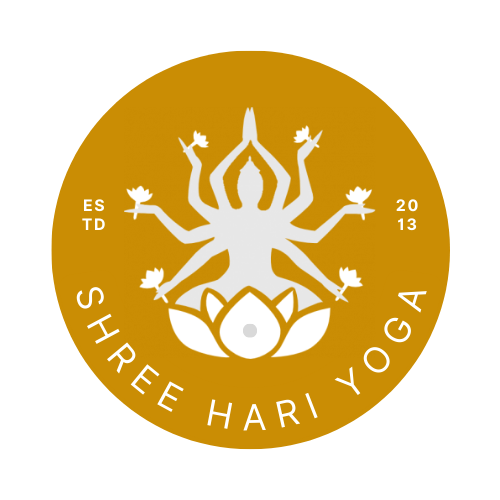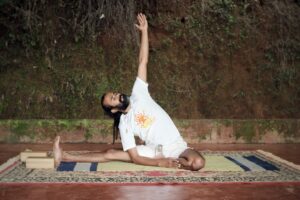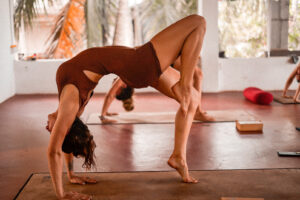Table of Contents
ToggleYoga Myths: Debunking Common Misconceptions About Yoga
Yoga has been practiced for thousands of years and continues to gain global popularity. But with its rise in the modern wellness world, several myths and misconceptions about yoga have emerged—discouraging many from starting or continuing their practice. Let’s bust some of the most common myths and get to the truth about yoga.
Myth 1: Yoga is Only for the Flexible
Fact: Flexibility is not a requirement to start yoga—it is a result of regular practice. Yoga meets you where you are, no matter your current flexibility level. You don’t need to touch your toes to practice; instead, yoga helps you reach them over time.
Myth 2: You Need Hours to Practice Yoga
Fact: Even 10–15 minutes of yoga can make a difference. A consistent short practice can enhance flexibility, reduce stress, and boost energy. You don’t need to dedicate an entire hour—yoga fits into any lifestyle.
Myth 3: Yoga is Only for Women
Fact: While yoga is often marketed towards women, it’s equally beneficial for men. Historically, yoga was practiced predominantly by men in India. Today, it helps people of all genders improve strength, mobility, and mindfulness.
Myth 4: Yoga is Easy
Fact: Yoga can be both gentle and challenging. Some poses demand strength, balance, and concentration. It’s a discipline that builds over time. Whether you’re doing restorative or power yoga, it engages both body and mind.
Myth 5: Yoga is Only for the Fit and Healthy
Fact: Yoga is for everyone—regardless of age, fitness level, or health condition. It can be adapted using props and modifications to suit individual needs. Yoga supports healing, recovery, and wellness at every stage of life.
Myth 6: You Must Touch Your Toes to Do Yoga
Fact: Not all yoga poses involve touching your toes. Yoga encourages functional movement and meeting your body where it is. The emphasis is on alignment, breath, and presence—not perfection.
Myth 7: You Have to Go to a Studio to Practice Yoga
Fact: While studios offer community and instruction, you can practice yoga anywhere—at home, outdoors, or even while traveling. There are countless online classes, mobile apps, and videos for self-guided practice.
Myth 8: You Need to Contort Your Body Like a Gymnast
Fact: Instagram-worthy yoga poses aren’t the goal. Yoga is not about how deep your backbend goes—it’s about how deeply you connect with yourself. Simple poses done with awareness offer immense benefits.
Myth 9: You Must Wear Tight-Fitting Clothes
Fact: There is no dress code for yoga. Wear what makes you feel comfortable and free to move. Loose, breathable clothing is just as effective as form-fitting gear.
Myth 10: Yoga is a Religion
Fact: Yoga is a spiritual and philosophical practice, not a religion. It has roots in ancient Indian traditions but is open to people of all beliefs. You don’t need to follow any doctrine to practice yoga.
Myth 11: Yoga is Just Stretching
Fact: While yoga includes stretching, it’s also a full-body workout that builds strength, balance, endurance, and mental clarity. It engages muscles, calms the nervous system, and connects breath to movement.
Myth 12: You Must Meditate to Do Yoga
Fact: Meditation is a component of yoga, but not a requirement. You can focus solely on the physical practice (asanas) or breathing techniques (pranayama). Many find that the physical flow naturally leads to a meditative state.
Myth 13: Yoga Requires Special Equipment
Fact: All you truly need is your body and a comfortable space. While yoga mats, blocks, and straps can enhance your practice, they are not essential. Yoga is a low-cost, low-barrier practice accessible to all.
Myth 14: Yoga is Only for Relaxation
Fact: Yoga can be deeply relaxing, but it can also be intense and dynamic, depending on the style. From yin and restorative yoga to vinyasa and power yoga, there’s a wide spectrum of intensity levels to suit your goals.
FAQs About Yoga
Q: Can yoga be dangerous?
A: Like any physical activity, injury is possible if practiced without awareness. Always listen to your body, use modifications, and seek guidance if you’re unsure.
Q: Can yoga help with weight loss?
A: While yoga isn’t a high-calorie-burning workout, it promotes mindfulness, reduces stress (which contributes to weight gain), and encourages healthier habits. Over time, it supports a holistic path to weight management.
Q: Is yoga enough as a standalone workout?
A: It can be, depending on the style and your goals. More dynamic styles like Vinyasa or Ashtanga can provide cardio and strength benefits, while slower styles complement other forms of exercise.
Q: What if I’m not spiritual? Can I still do yoga?
A: Absolutely. Yoga can be purely physical, philosophical, or spiritual—how you practice is entirely up to you.
In Conclusion: Yoga is for Everyone
Yoga is a practice of connection—to your body, breath, and mind. It isn’t about flexibility or performing the perfect pose. It’s about self-awareness, growth, and presence.
So whether you’re stiff, strong, young, old, male, female, spiritual, or secular—yoga welcomes you as you are.





